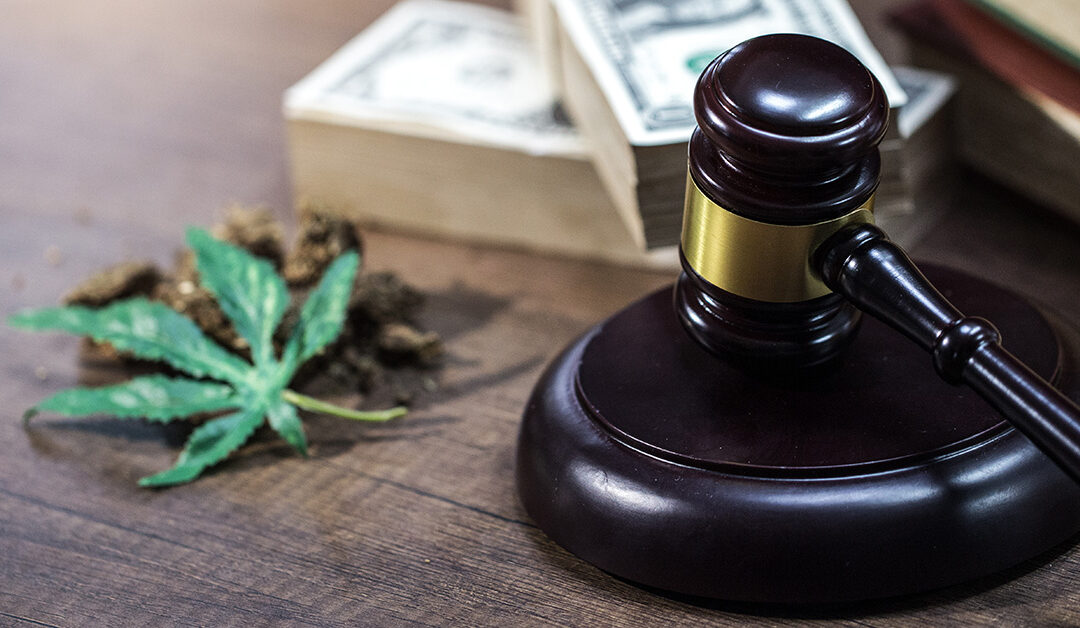The Coachella Valley, nestled in the southern part of California, is renowned for its picturesque landscapes, breathtaking resorts, and the iconic Coachella Valley Music and Arts Festival. However, another aspect that has significantly shaped the region’s identity is the evolution of cannabis laws over time.
As societal attitudes towards marijuana have evolved, so have the legal frameworks governing its use, possession, and distribution in the Coachella Valley. This article delves into the history and current state of cannabis laws in each city within the valley, shedding light on how they have adapted to the changing times.
The Evolution of Cannabis Laws in Coachella Valley
 The Coachella Valley has experienced a marked transformation in its cannabis laws over the decades. The journey began with California’s legalization of medical marijuana in 1996 through Proposition 215, also known as the Compassionate Use Act. This landmark initiative allowed patients with valid medical conditions to access marijuana for therapeutic purposes with a doctor’s recommendation.
The Coachella Valley has experienced a marked transformation in its cannabis laws over the decades. The journey began with California’s legalization of medical marijuana in 1996 through Proposition 215, also known as the Compassionate Use Act. This landmark initiative allowed patients with valid medical conditions to access marijuana for therapeutic purposes with a doctor’s recommendation.
Subsequently, Proposition 64, the Adult Use of Marijuana Act, was passed in 2016, making California one of the states to legalize recreational marijuana. This move ushered in a new era for the cannabis industry in the Coachella Valley, opening up opportunities for businesses and sparking debates among local authorities regarding regulations.
In California, adults aged 21 and above can legally possess up to 28.5 grams of cannabis and purchase it from licensed dispensaries. Consumption is allowed in private spaces, but not in public. Driving under the influence is illegal, and workplace policies may prohibit cannabis use. Cultivating up to six plants at home is permitted. Remember to consume responsibly and stay informed about any law changes. Enjoy cannabis safely and legally!
A Summary of Cannabis Laws in Each City
Palm Springs Cannabis Laws
Palm Springs has been at the forefront of embracing cannabis tourism and businesses. It allows both medical and recreational marijuana sales, cultivation, and distribution, with a well-regulated licensing system for dispensaries. The city has also taken progressive steps by lowering tax rates on cannabis sales to encourage legal operations.
City of Palm Springs: https://www.palmspringsca.gov/government/departments/special-program-compliance/cannabis-related-business-and-activities
Desert Hot Springs Cannabis Laws
Desert Hot Springs is known for its cannabis-friendly policies, which include cultivation and manufacturing of marijuana products. The city has strategically positioned itself as a cultivation hub, attracting businesses looking to take advantage of its favorable regulations.
City of Desert Hot Springs: https://www.cityofdhs.org/departments/cannabis-compliance/
Cathedral City Cannabis Laws
Cathedral City permits both medical and recreational marijuana dispensaries and cultivators within its boundaries. The city imposes zoning restrictions to ensure dispensaries are a safe distance from sensitive areas like schools and residential neighborhoods.
City of Cathedral City: https://www.cathedralcity.gov/business/cannabis
Rancho Mirage Cannabis Laws
Unlike some of its neighboring cities, Rancho Mirage has taken a more conservative approach to cannabis laws. It currently prohibits all marijuana-related activities, including dispensaries and cultivation, within city limits.
City of Rancho Mirage: https://www.desertsun.com/story/money/2017/12/14/recreational-pot-coming-coachella-valley-heres-where-find/940702001/
Palm Desert Cannabis Laws
Palm Desert initially placed a ban on all cannabis-related activities, but as attitudes shifted, the city allowed medical marijuana dispensaries with stringent zoning regulations. However, recreational dispensaries are still prohibited.
City of Palm Desert: https://www.palmdesert.gov/our-city/departments/planning/marijuana-cannabis
Indian Wells Cannabis Laws
Indian Wells has opted to prohibit all marijuana-related activities within the city, including both medical and recreational dispensaries.
City of Indian Wells: https://library.qcode.us/lib/indian_wells_ca/pub/municipal_code/item/title_21-chapter_21_90-21_90_020
La Quinta Cannabis Laws
La Quinta allows medical marijuana dispensaries and cultivators while prohibiting recreational dispensaries. Like other cities, it enforces zoning laws to maintain a balance between cannabis businesses and sensitive areas.
City of La Quinta: https://econdev.laquintaca.gov/business-assistance/medical-cannabis-delivery-application
Indio Cannabis Laws
Indio initially banned all marijuana-related businesses, but it later allowed medical marijuana dispensaries with strict regulations. However, recreational dispensaries remain prohibited.
City of Indio: https://www.indio.org/departments/community-development-department/cannabis
Coachella Cannabis Laws
Coachella also prohibits all marijuana-related activities, including dispensaries and cultivation, within city limits.
City of Coachella: https://www.coachellacannabis.org/home-cannabis
Conclusion on Coachella Valley Cannabis Laws
The Coachella Valley has witnessed a significant shift in its cannabis laws, mirroring the broader trends seen across California and the United States. From the initial embrace of medical marijuana to the legalization of recreational use, the region has experienced a progressive transformation. While some cities in the valley have embraced the opportunities presented by the burgeoning cannabis industry, others have opted for a more conservative stance, maintaining strict prohibitions.
As the cannabis landscape continues to evolve, it is essential for the cities in the Coachella Valley to strike a balance between fostering economic growth, preserving public safety, and respecting the preferences of their residents. Through thoughtful and data-driven regulations, the region can continue to be at the forefront of the cannabis movement, embracing the changing attitudes towards marijuana while ensuring a responsible and well-regulated industry.

